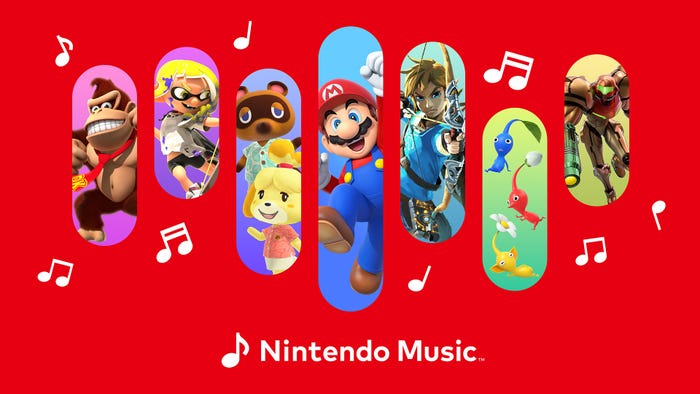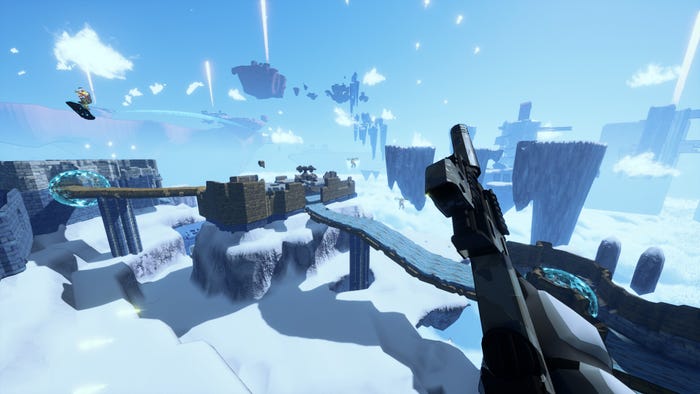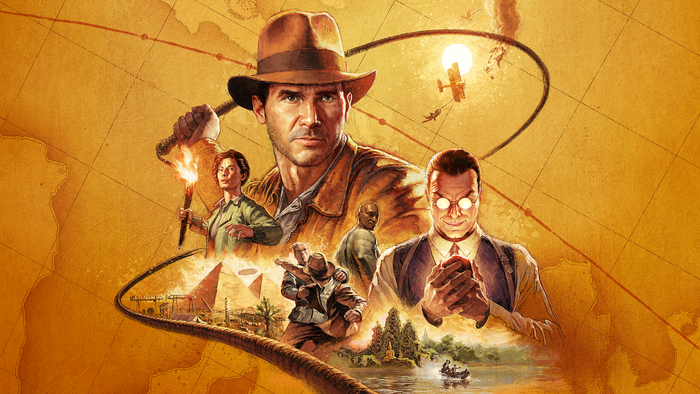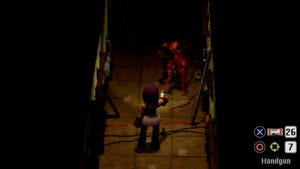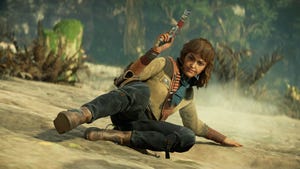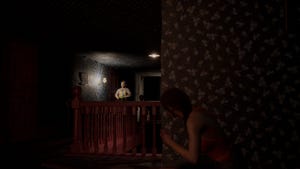IndieCade: Uncharted's Unlikely Indie Inspirations
Naughty Dog's Richard Lemarchand told a captivated audience at Friday's IndieCade keynote about some unexpected indie inspirations for the Uncharted series, including The Graveyard and Passage.

In his wide-ranging keynote that opened this year's IndieCade in Culver City, California on Friday, Naughty Dog's Richard Lemarchand explained why he loves independent video games and how they are reflected in his work on the Uncharted series. Lemarchand opened by describing his upbringing in the southwest of England, establishing that his childhood -- unstructured play dressed as "characters from Doctor Who and Star Wars" in the woods near his house and ownership of ZX Spectrum -- has influenced his life as a designer. Name-checking titles such as Jet Set Willy, Sabre Wulf and Alien 8 as part of the wave of British bedroom coders that were "independent developers in spirit," Lemarchand said he grew up as an "indie-minded kid" within the wider context of Britain in the 1980s where accessible reproduction technology such as cassette tapes and photocopiers allowed the creation of indie music and independent books and 'zines. "I was a teenager when I first became aware of design as a discipline," he said. "It was actually my mum who introduced me to the works of William Morris, the Victorian textile designer who had a vision for design as something that could help us all in our daily life." Quoting Morris's famous statement on interior design ("Have nothing in your house that you do not know to be useful or believe to be beautiful,") Lemarchand argued that it could be used as an early suggestion for design by subtraction. He sees design similarly to Jon Blow (Braid), as systems, "a set of rules causing behaviour to occur over time." Showing the audience footage of Godfrey Reggio's film Koyaanisqatsi, which uses time-lapse photography to show human and natural systems, Lemarchand said that games "hold our attention by taking advantage of the way we are grabbed by seeing systems evolve in front of our eyes." "I'm a physicalist; I believe that human beings are purely physical, produced by the same processes and following the same rules of everything else in the universe, and it stands to reason then that we are systems too. I even wonder if our fascination with systems is governed by our own recognition that is what we are." He continued that these game systems are most enriched by the work of independent game developers. "Mainstream games work with commercial concerns, and indie games can take risks that they can't," he said. "I think that's very important, not just in general or for indie gaming, but for mainstream games too; we can learn from the lessons that indie games teach and make our games better for it." Lemarchand gave his own example of this, taken from the development of Uncharted 2. "We thought about the player's attachment to friendly characters and the game's structure really had to support that. I took control of a section that was a major risk, the chapter commonly known as the 'peaceful village.' I can't take credit for the original idea, but the concept was we'd show the village on a normal clear day, and then when the player returns to it to find it under siege, they would feel particularly bad and responsible, much more than if they had just been dropped in a village under siege level and told why they should feel that way." "Some people at Naughty Dog didn't think that this scene would work," he revealed, "as we couldn't allow the player to run, jump or climb, perform combat moves on villagers or pull out their gun. I had just played a game however that made me feel that it was definitely going to work." That game was Tale of Tales' The Graveyard, a title that Lemarchand said had affected him "much more than he expected" with its simple experience of leading a slowly-moving elderly lady through a graveyard. "I thought that in the same way that The Graveyard had created a space for me where I could reflect, so could our village." He explained however that within the context of Uncharted 2, although they had blocked players from attacking villagers, the "first thing" people did when arriving in the village was "run up to a villager and attempt to throw a punch." "We discovered that they weren't trying to beat up the villagers, they were just testing the boundaries of the system," he said. "I think that's a very human kind of curiosity, and I worked with artists and animators who did all the really hard work to ensure that if you did try and punch a villager it would a show an animation of Drake shaking hands with them." "This level was a big risk for us but a big success," he continued. "I think its success is a mark that some video games are really hungry for this kind of open, self-directed play. The design affordances that all this stuff hinges on are pretty simple; the psychological effect comes from the way the content is authored. You might this kind of play theatrical or impressionistic, but at Naughty Dog we talk about it as experiential." Lemarchand continued to give more examples of titles that had inspired him on his work on Uncharted 2 and the upcoming Uncharted 3, including Passage, Superbrothers: Sword and Sworcery EP and A Slow Year, describing them as "wonderful emotional and psychological experiences" built from content presented via the tools available to designers: "clarity, simplicity and clear language." "The challenge is to squeeze emotion out of facts and sense impressions, and that's okay because that's how art works. It's really hard to do with 'game-like' games, with rules and win conditions, but it's possible to conjure a greater emotion through very strictly used game systems. Whenever you hear me say that if you want to be in pursuit of art in video games that you make sure your game is about something, this is what I'm talking about." "It doesn't matter if your game is hardcore ludic or loose and subjective; it's very unusual to find an indie game that isn't about something real, and that's why I love indie games."
About the Author
You May Also Like


